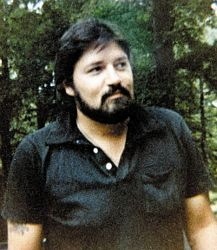
Charles Jaeger
Unsolved murder makes case for DNA, official says
Sunday, April 20, 2008
By M.D. KITTLE
Telegraph Herald ASSISTANT CITY EDITOR
It might be a cold case, but could DNA testing heat up the long-idle investigation of a Dyersville, Iowa, man shot to death in 1984?
An official from the Iowa Division of Criminal Investigation thinks modern forensics could offer some hope.
Unsolved cases such as the murder of Charles Jaeger would appear to be precisely why DCI is creating a special cold-case unit, finally getting state resources after years of begging the Legislature for funding.
“There is no reason why someone shouldn’t be held accountable for a crime like this just because the state of Iowa doesn’t have the resources to apply to cases like this,” said John Quinn, the division’s assistant director in charge of field operations.
Jaeger was shot in the back of the head in August 1984. The murder weapon has never been found, and no one has ever been charged.
In July, DCI will begin receiving funding for the cold-case team, created to identify cases that can be resolved with DNA analysis and additional investigative work.
“No one should be allowed to commit a crime like this and just with the passage of time be allowed to get away with it, especially with the technology we now have,” Quinn said.
Today’s DNA testing was a dream of forensic experts in 1984. It has over the years evolved into a very precise identifier, what investigators like to describe as a “genetic fingerprint,” and has become much less expensive.
Dubuque County Attorney Ralph Potter, who assisted in the Jaeger case as a young assistant county attorney, is not convinced DNA would be effective in the case. He said the DNA of Jaeger’s wife and two sons, reportedly at home at the time of the homicide, would be everywhere in the house, making it difficult to get a clear read. The wife and sons were initial suspects.
Quinn said it all depends on the circumstances and the value of the sample.
DCI has a file of about 150 unsolved cases, Quinn said. He said there are many more cold cases outside DCI’s jurisdiction in Iowa’s larger cities.
“When you add into all these other cases that are unresolved, people would be amazed,” he said.
The cold case team would include DCI agents, members of medical examiner offices, prosecutors and other law enforcement officers. The team would review the facts of a case, identify key witnesses that can be interviewed and conduct ongoing and active investigations.
“Now that (the Jaeger case) has been brought to my attention, I’m going to bring it to the attention of the cold case team and say, ‘Let’s look at this case,'” Quinn said.
Copyright © Dubuque Telegraph Herald
More on Charles Jaeger



Recent Comments